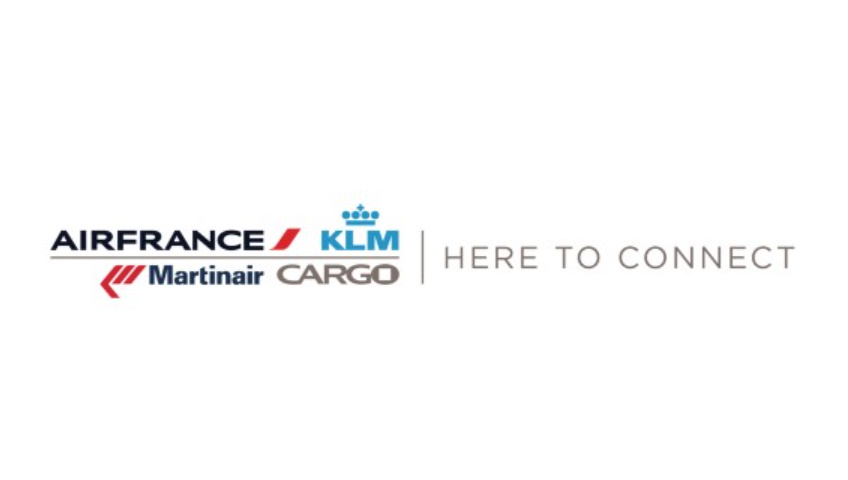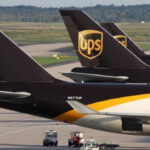1. Introduction to Air France Cargo
Air France Cargo is a major player in the global air freight industry, offering comprehensive cargo services that cater to various industries worldwide. As a subsidiary of Air France-KLM, the cargo division leverages an extensive network of destinations, connecting businesses across continents with reliable and efficient transport solutions. The services provided by Air France Cargo are crucial for businesses that require the swift and secure transportation of goods, ranging from perishable items to high-value machinery.
1.1 Overview of Air France Cargo
Air France Cargo operates as part of the larger Air France-KLM Cargo network, providing freight services to over 300 destinations globally. The company specializes in handling various types of cargo, including general cargo, perishables, pharmaceuticals, and live animals. With a fleet that includes dedicated cargo aircraft and belly capacity in passenger flights, Air France Cargo offers flexible and scalable solutions to meet the diverse needs of its clients.
1.2 Importance of Cargo Services in Global Trade
In the increasingly interconnected global economy, air cargo services like those offered by Air France Cargo are vital for maintaining supply chains. These services enable businesses to ship goods quickly and reliably, ensuring that products reach their destinations in optimal condition. This is particularly important for industries such as pharmaceuticals, where the timely delivery of temperature-sensitive products can be critical.
1.3 Key Industries Served by Air France Cargo
Air France Cargo caters to a broad range of industries, including but not limited to:
- Pharmaceuticals: Ensuring the safe and timely delivery of temperature-sensitive medical products.
- Automotive: Transporting parts and vehicles to global markets.
- Fashion: Facilitating the fast shipment of high-value garments and accessories.
- Perishables: Delivering fresh produce, flowers, and seafood across continents.
2. Air France Cargo Tracking Overview
Cargo tracking is an essential service provided by Air France Cargo, allowing customers to monitor the status of their shipments in real time. With tracking, businesses gain visibility over their supply chains, enabling them to manage logistics more effectively and provide accurate updates to their customers.
2.1 What is Cargo Tracking?
Cargo tracking involves monitoring the movement of goods from the point of origin to the final destination. This process uses tracking numbers, such as an Air Waybill (AWB) number, to identify and follow the progress of a shipment through various checkpoints.
2.2 Why Cargo Tracking is Crucial for Businesses
For businesses, cargo tracking is a critical tool for ensuring the smooth operation of their supply chains. It provides real-time information on the location and status of shipments, helping to avoid delays and minimize disruptions. Moreover, tracking enhances transparency, enabling businesses to provide their customers with accurate delivery timelines.
2.3 How Air France Cargo Tracking Works
Air France Cargo offers several methods for tracking shipments. Customers can track their cargo online through the Air France Cargo website, using the Air Waybill number provided at the time of shipment. This service offers real-time updates on the shipment’s location and status, including details on customs clearance and final delivery.
3. Methods of Tracking Air France Cargo
Air France Cargo provides multiple options for tracking shipments, ensuring customers can access their shipment information through the method most convenient for them.
3.1 Online Tracking via Air France Cargo Website
The primary method for tracking Air France cargo is through their official website. Customers can enter their Air Waybill number into the tracking tool on the site to receive up-to-date information on their shipment’s progress. This service is available 24/7, making it accessible for global users across different time zones.
3.2 Tracking via Air France Mobile App
For users on the go, Air France offers a mobile app that includes cargo tracking features. The app provides the same real-time tracking updates as the website, along with notifications about shipment status changes. This mobile solution is particularly useful for logistics managers who need to monitor multiple shipments simultaneously.
3.3 Third-Party Cargo Tracking Services
In addition to Air France’s own tools, third-party logistics platforms also offer cargo tracking services that integrate with Air France Cargo. These platforms often provide additional features, such as tracking multiple carriers in one interface and offering analytics on shipment performance.
4. Step-by-Step Guide to Air France Cargo Tracking
Tracking your cargo with Air France is a straightforward process. Here’s a detailed guide to help you get started:
4.1 Obtaining Your Air Waybill Number (AWB)
The Air Waybill (AWB) is a unique tracking number assigned to your shipment. It serves as a reference for both the carrier and the customer throughout the shipping process. This number is provided at the time of booking and is essential for tracking your cargo.
4.2 Using the Air France Cargo Tracking Tool
Once you have your AWB number, go to the Air France Cargo website and locate the tracking tool. Enter your AWB number into the tool, and it will display the current status of your shipment, including its location, expected delivery time, and any delays or issues.
4.3 Understanding Tracking Updates and Status Codes
When tracking your shipment, you’ll encounter various status updates and codes that provide detailed information about its journey. Common status updates include:
- Received: The shipment has been received by Air France Cargo and is awaiting further processing.
- In Transit: The shipment is en route to its destination.
- Customs Clearance: The shipment is undergoing customs procedures at the destination country.
- Delivered: The shipment has been successfully delivered to the recipient.
5. Benefits of Using Air France Cargo Tracking
Tracking your cargo with Air France offers numerous advantages that contribute to more efficient and reliable logistics operations.
5.1 Real-Time Visibility and Updates
One of the primary benefits of cargo tracking is real-time visibility. Customers can see exactly where their shipments are at any given moment, allowing them to plan accordingly and respond to any potential delays.
5.2 Improved Supply Chain Efficiency
By providing detailed tracking information, Air France Cargo helps businesses streamline their supply chains. This transparency reduces the likelihood of errors, such as lost shipments, and enables faster decision-making in the event of disruptions.
5.3 Enhanced Customer Satisfaction
Providing customers with accurate and timely information about their shipments builds trust and satisfaction. Businesses can use tracking data to keep customers informed, reducing anxiety about delivery times and ensuring a positive customer experience.
6. Common Issues with Cargo Tracking
Despite its many benefits, cargo tracking can sometimes present challenges. Understanding these issues can help you address them effectively.
6.1 Delays in Tracking Updates
Occasionally, tracking information may not be updated in real-time due to system delays or issues at checkpoints. In such cases, it’s important to remain patient and allow time for the system to refresh.
6.2 Incorrect or Missing Tracking Information
Errors in tracking data can occur, leading to confusion about the status of a shipment. If you encounter incorrect or missing information, it’s advisable to contact Air France Cargo customer support for clarification.
6.3 What to Do When Tracking Information is Unavailable
If your tracking information is unavailable or outdated, check for updates periodically. If the issue persists, reach out to Air France Cargo for assistance, as there may be a temporary system outage or other technical issues.
7. Air France Cargo Tracking for International Shipments
Tracking international cargo presents unique challenges, particularly concerning customs and cross-border regulations.
7.1 Challenges in Tracking International Cargo
International shipments may pass through multiple carriers and customs authorities, leading to delays in tracking updates. Differences in time zones and communication barriers can further complicate the tracking process.
7.2 Customs and Documentation Tracking
Customs clearance is a critical step in international shipping. Tracking systems often provide updates on the customs process, including when the shipment is under review and when it has been cleared. Delays in customs can significantly impact delivery times, so staying informed through tracking is essential.
7.3 Tracking High-Value or Sensitive Cargo
For high-value or sensitive shipments, such as pharmaceuticals or electronics, Air France Cargo offers specialized tracking services. These include enhanced security measures and additional tracking checkpoints to ensure the safe delivery of valuable goods.
8. Integrating Air France Cargo Tracking with Business Systems
Businesses can enhance their logistics operations by integrating Air France Cargo tracking data into their internal systems.
8.1 API Integration for Automated Tracking
Air France Cargo offers API integration, allowing businesses to automate the tracking process by embedding tracking data directly into their logistics platforms. This integration ensures real-time updates and streamlines the monitoring of multiple shipments.
8.2 Using Tracking Data for Business Analytics
Tracking data can also be used for analytics, helping businesses identify trends, optimize routes, and improve delivery times. By analyzing tracking data, companies can gain insights into their supply chain performance and make informed decisions.
8.3 Case Study: Successful Integration of Air France Cargo Tracking
A case study of a multinational company that successfully integrated Air France Cargo tracking into their logistics system could illustrate the benefits. The integration resulted in reduced shipping times, lower costs, and improved customer satisfaction.
9. Air France Cargo Customer Support
Air France Cargo provides robust customer support to assist with tracking issues and ensure smooth shipment management.
9.1 Contacting Air France Cargo for Tracking Assistance
If you encounter issues with tracking your shipment, Air France Cargo offers multiple support channels, including phone, email, and online chat. Customer support can provide detailed information on shipment status, resolve discrepancies, and offer guidance on next steps.
9.2 Resolving Tracking Discrepancies
In cases where tracking information is incorrect or inconsistent, customer support can investigate the issue and provide updates. It’s important to have your AWB number and shipment details ready when contacting support for a faster resolution.
9.3 Support Options for Businesses with High-Volume Shipments
Businesses that frequently ship large volumes may have access to dedicated support teams within Air France Cargo. These teams can provide tailored assistance, including proactive tracking updates and priority handling for urgent shipments.
10. Tracking Air France Cargo During Disruptions
External factors such as weather events, strikes, or natural disasters can impact cargo tracking and delivery.
10.1 Impact of Weather and Natural Disasters on Cargo Tracking
Severe weather and natural disasters can cause significant disruptions to air cargo operations. Tracking systems may reflect delays or rerouted shipments during such events. It’s important to monitor updates closely and stay in contact with Air France Cargo for the latest information.
10.2 Navigating Cargo Tracking During Strikes and Operational Delays
Strikes by airport or airline staff can also lead to tracking and delivery delays. Air France Cargo typically provides updates on how such events may affect shipments, allowing customers to adjust their plans accordingly.
10.3 Best Practices for Managing Tracking During Disruptions
During disruptions, it’s advisable to maintain close communication with Air France Cargo and be proactive in seeking updates. Planning for contingencies, such as alternative shipping routes, can also help mitigate the impact of delays.
11. Security and Privacy in Cargo Tracking
Maintaining the security and privacy of cargo tracking information is a top priority for Air France Cargo.
11.1 Protecting Sensitive Cargo Information
Air France Cargo employs robust security measures to protect the confidentiality of tracking data, especially for high-value or sensitive shipments. These measures include encryption and secure access protocols to prevent unauthorized access.
11.2 Compliance with International Tracking Regulations
Air France Cargo adheres to international regulations regarding the security and privacy of tracking information. This includes compliance with GDPR and other data protection laws that govern the handling of customer data.
11.3 Air France Cargo’s Security Measures
The company implements various security protocols, such as two-factor authentication for accessing tracking data, to ensure that only authorized personnel can view and manage shipment information.
12. Future Trends in Cargo Tracking
The field of cargo tracking is evolving rapidly, with new technologies enhancing the capabilities of tracking systems.
12.1 Advances in Tracking Technology
Advancements in GPS, RFID, and blockchain technology are revolutionizing cargo tracking. These technologies enable more precise tracking, real-time updates, and increased transparency across the supply chain.
12.2 The Role of AI and IoT in Cargo Tracking
Artificial Intelligence (AI) and the Internet of Things (IoT) are playing an increasingly important role in cargo tracking. AI can predict potential delays and optimize routes, while IoT devices provide real-time data on the condition of shipments, such as temperature and humidity levels.
12.3 Predictions for the Future of Air Cargo Tracking
Looking ahead, the future of cargo tracking will likely involve even greater automation, enhanced predictive capabilities, and more integrated tracking solutions that provide end-to-end visibility across global supply chains.
13. Comparison with Other Cargo Tracking Services
When choosing a cargo tracking service, it’s important to compare the offerings of different providers.
13.1 Air France Cargo vs. KLM Cargo Tracking
Both Air France and KLM offer robust cargo tracking services, with KLM also being part of the Air France-KLM Cargo network. However, there may be differences in the tools and features offered, depending on the specific needs of the customer.
13.2 Air France Cargo vs. Lufthansa Cargo Tracking
Comparing Air France Cargo with Lufthansa Cargo, another major European carrier, can highlight differences in tracking capabilities, network reach, and customer support. Each carrier may have unique strengths that appeal to different types of businesses.
13.3 Key Differentiators of Air France Cargo Tracking
Air France Cargo’s tracking service is distinguished by its user-friendly interface, real-time updates, and comprehensive support options. These features make it a preferred choice for businesses that require reliable and transparent shipment tracking.
14. FAQs about Air France Cargo Tracking
14.1 How do I track my Air France cargo shipment?
You can track your Air France cargo shipment by entering your Air Waybill number on the Air France Cargo website or mobile app.
14.2 What should I do if my tracking number is not working?
If your tracking number is not working, first double-check the number for accuracy. If the issue persists, contact Air France Cargo customer support for assistance.
14.3 Can I track multiple shipments at once?
Yes, you can track multiple shipments simultaneously by entering each Air Waybill number into the tracking tool or using a third-party logistics platform that supports multi-shipment tracking.
14.4 How often is tracking information updated?
Tracking information is typically updated in real-time as your shipment passes through different checkpoints. However, updates may be delayed during busy periods or due to technical issues.
14.5 What does it mean when my cargo status is “in transit”?
“In transit” indicates that your shipment is currently en route to its destination. It may be on a plane, at a transit hub, or in the process of being transported between locations.
14.6 How do I get support for tracking issues?
For tracking issues, you can contact Air France Cargo customer support via phone, email, or online chat. Make sure to have your Air Waybill number and shipment details ready for faster assistance.
15. Conclusion
15.1 Summary of Key Points on Air France Cargo Tracking
Air France Cargo provides a comprehensive tracking service that offers real-time visibility, enhances supply chain efficiency, and improves customer satisfaction. The tracking system is accessible via the Air France website, mobile app, and third-party platforms, making it easy for customers to monitor their shipments.
15.2 Final Thoughts on the Importance of Efficient Cargo Tracking
Efficient cargo tracking is crucial for businesses that rely on timely and reliable deliveries. By using Air France Cargo’s tracking services, businesses can gain better control over their logistics operations, reduce the risk of delays, and ensure that their customers receive their goods on time.
15.3 How to Get the Most Out of Air France Cargo Tracking Services
To maximize the benefits of Air France Cargo tracking, businesses should integrate tracking data into their logistics systems, stay informed about potential disruptions, and use the insights gained from tracking data to optimize their supply chains.





